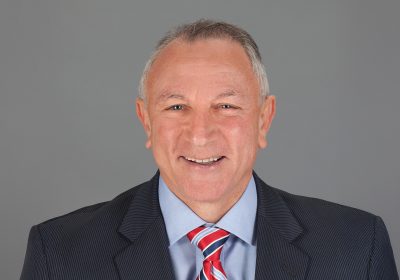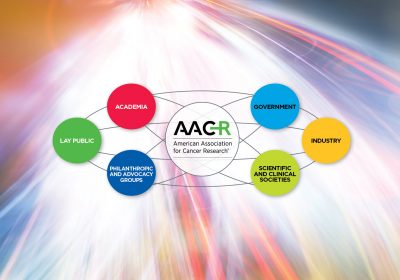AACR Volunteers and Ambassadors
From Fundraising to Gala Planning, Beverly Fassler Goldberg Does it All
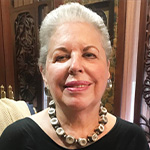
Since 2016, the American Association for Cancer Research (AACR) has been designated as the beneficiary of Party With a Purpose, a Philadelphia-based gala organized by the Friends of the AACR Foundation. Each year, funds from the gala are dedicated to research on a type of cancer, and Scientific and Early Career Research awards are granted to scientists working on that cancer type.
Beverly Fassler Goldberg, the president of the Party With a Purpose Committee, is the fundraising powerhouse behind the success of the annual gala. Fassler Goldberg has helped raise more than $2 million for the AACR over five years. She and the committee are responsible for planning the gala, raising funds, selling tickets, and collecting between 200 and 300 items donated by local businesses for the gala’s charity auction.
“I am so proud to be the president of the Friends of the AACR Foundation,” Fassler Goldberg said. “I have the most fabulous group of volunteers. It has been a true privilege and unique opportunity for me to be involved with this exceptional team of past and new members who have given so much of their time and steadfast commitment to our cause.”
Fassler Goldberg is especially grateful to work beside Margaret Foti, PhD, MD (hc), the AACR’s chief executive officer. “She really is an inspiration to our group,” Fassler Goldberg said. “She comes to many of our meetings, provides so much support, and it’s wonderful to work so closely with her.”
When asked what inspires her to devote so much time and energy to the galas, she explained, “I want to bring new hope and real help to people diagnosed with cancer. I feel so empowered to make a difference.”
Though the Party With a Purpose gala was canceled in 2020 due to COVID-19, Fassler Goldberg hopes the event will happen again when it can be held safely. “I am looking forward to gathering in-person again to start planning the next event,” she said.
Desirée A. H. Walker: Empowering Survivors Through Education and Advocacy
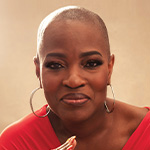
At the age of 38, Desirée A. H. Walker was diagnosed with breast cancer. Shortly after her eighth cancerversary, she received news that the breast cancer had reoccurred. Now, Walker serves as a patient advocate by openly speaking about her diagnoses to audiences both nationally and internationally, reviewing research protocols, and working with research teams.
Walker didn’t foresee herself developing a passion for advocacy. “I never thought of advocacy—or patient advocacy—growing up,” she said. After her breast cancer diagnosis, she realized she needed to educate herself on the disease, since she knew nothing about it and wanted to know her options to prepare for upcoming consultations with physicians as she built her health care team.
“I realized it was important to get out there and tell my story,” she added. Walker feels that in the African American and African Caribbean communities, cancer isn’t always spoken about openly, and many are not aware that young adults can be diagnosed with breast cancer too. “I took it upon myself to address this stigma by not being silent.”
Eighteen months after her initial diagnosis, she connected with her first organization, the Witness Project of Harlem, and began to develop her voice as a patient advocate. This organization raises breast and cervical cancer awareness through their outreach efforts in New York City’s African American and African Caribbean communities. She also serves as president of the Young Survival Coalition’s Board of Directors. She is a member of the National Coalition for Cancer Survivorship (NCCS) Cancer Policy and Advocacy Team Steering Committee and two other NCCS entities—Redefining Functional Status and the Telehealth Project. She also serves on the Central Institutional Review Board for the National Cancer Institute; the Society of Integrative Oncology’s Patient Advocate and Research Committees and its Health Equity Task Force; and the SWOG Cancer Research Network’s Recruitment and Retention and Patient Advocate Committees, among many other roles.
Walker is passionate about addressing cancer health disparities experienced by underserved communities, especially those of African ancestry. She serves as a SHARE support group facilitator for women of African heritage who have been diagnosed with breast cancer or ovarian cancer to address an unmet need. “There are many issues,” she said. “Many people are not well-informed about the diseases and cancers that plague their community; the signs that medical attention should be sought and pain should not be the norm; how to identify the best provider for their situation, and that may mean going outside of their neighborhood for care; and what questions they should ask, how to advocate for themselves, and the need to share in the decision-making once they have all the facts.” She mentions other differences in health care that communities of Black, indigenous and people of color face as barriers—access to quality screenings, access to quality care, inadequate or no insurance coverage, health care providers lacking cultural competence, and not being offered clinical trials as a treatment option, among others.
As Walker began to rebound from her second bout with breast cancer, she decided to get involved in research and legislative advocacy. While attending the San Antonio Breast Cancer Symposium in 2012, she met Karen Russell, manager of the Patient Advocacy Program at the American Association for Cancer Research (AACR). Russell introduced Walker to the AACR Scientist↔Survivor Program, encouraged her to apply, and thereafter her relationship with the AACR began. She has attended several AACR Hill Days, which are annual events that bring AACR members to Washington, D.C., to advocate for robust, sustained and predictable funding for cancer research. Since 2013, she has attended a few AACR Annual Meetings and Conferences on the Science of Cancer Health Disparities in Racial/Ethnic Minorities and the Medically Underserved.
Walker has provided a patient advocate perspective at the Cancer Policy Roundtable of the National Coalition for Cancer Survivorship, the Memorial Sloan Kettering Cancer Center’s National Minority Cancer Awareness events, Food and Drug Administration-Duke Accelerating Anticancer Agent Development and Validation Workshops; and the AACR’s 12th Conference on the Science of Cancer Health Disparities in Racial/Ethnic Minorities and the Medically Underserved, to name a few.
Walker understands that survivor voices are extremely important in legislative advocacy, explaining, “If a survivor is given a platform to tell you what their life has been like after a diagnosis, it’s now more personal. Being able to tell a story is important. Stories are captivating. Stories are meaningful. Stories can influence.”
In the coming years, she will focus her attention on influencing a shift in the clinical trial and research arena to include more diversity among participants. “Many researchers are not giving enough thought to how they’re going to recruit and retain diverse participants in their clinical trials and the value to science,” she said. “One of the things that is fueling me is the idea of diversity, equity, and inclusion in these trials, in research overall, and the benefits for all of us versus a select few.”
Walker plans to continue using her platform to be a voice for the voiceless and pay it forward by educating and empowering patients everywhere. She says, “Information will lead to your empowerment and your ability to discern what’s right for you.”
AACR Cancer Research Ambassador Amy N. Link
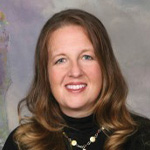
Amy N. Link wears many hats: breast cancer survivor, cancer research ambassador, mother, and author. She is also a member of the AACR Foundation’s Corporate Relations team.
Link was diagnosed with breast cancer in 2006 and received treatment over the next few years. Fourteen years later, she says she is healthy and cured.
While Link was undergoing chemotherapy, she was inspired to write a book for her children, who were 5 and 2 at the time. “I decided to write My Mommy Wears a Wig to show my children that shaving my head and wearing the wig was a good thing and not something to be scared or sad about,” she said. The book was published two years later in July 2009.
My Mommy Wears A Wig incorporates lighthearted humor while presenting chemotherapy-induced hair loss in a child-friendly way. A percentage of sales benefits the AACR and also fund a program to help cancer patients afford their co-pays.
Link has served as a survivor ambassador at several AACR events. “I love this job. You can’t find a job with a better mission,” she said. “As a survivor, I feel inspired every day.”




